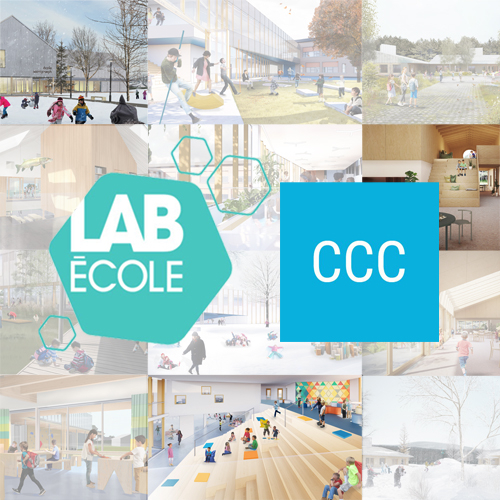As part of a collaboration with the LABécole organization, the Canadian Competitons Catalogue is the first to deliver all 160 projects submitted in 2019 to the 5 competitions for the construction or expansion of elementary school in Shefford, Rimouski, Gatineau, Maskinongé and Saguenay. The official unveiling of the winners took place on Monday, August 24.
LAB-ÉCOLE | Agrandissement et rénovation de l’école Saint-Joseph à Maskinongé
LAB-ÉCOLE | Rénovation et agrandissement de l’école primaire Pierre Elliott Trudeau à Gatineau
LAB-ÉCOLE | Construction d’une nouvelle école primaire à Shefford
LAB-ÉCOLE | Construction d’une nouvelle école primaire à Rimouski
“In 2020, judging by the number of architecture competitions held in Quebec over the past two decades and the number of award-winning buildings, it is easier to find an excellent library than an elementary school worthy of the name. This series of 5 competitions – open and in two phases – organized by the LAB-École organization therefore confronted two contradictory convictions: the certainty that places of schooling forge and shape what we are since early childhood and this conviction, widespread among public decision-makers, that we could basically study and teach anywhere. Particularly well organized by LAB-École, these competitions show, on the contrary, that architecture is not a luxury, but a necessity. For contexts as different as Saguenay, Maskinongé, Rimouski, Gatineau and Shefford, the proposals prove to be rich in reflections demonstrating that the question of primary school remains complex and cannot be circumscribed in models that can be repeated – in blue, wood or aluminum – whatever the context.”
Thanks to the teams of students from Université de Montréal working on the CCC and to CRC-ACME for this intense digital documentation work.

